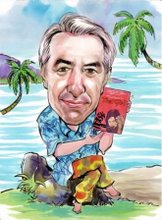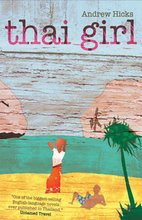
The door gods in Jianshui have been renewed for Chinese New Year.

The Yue family gardens are already open early in the morning.

This little boy waits for his papa and for breakfast.

There are clear signs of prosperity as this family enjoys their noodles.

They're all waiting for something but I'm not sure what.

For the elderly though it looks as if life's still a struggle.

A few days ago Cat and I were eating pao-tze in the soft sunlight of Kunming, the provincial capital of Yunnan, in the South West of China.
I was last in China fifteen years ago and before that in the mid-eighties. The very first time I visited was in 1978 when travel was first allowed after the doors had slammed shut and China became embroiled in its own self-destructive turmoil. Sadly for much of the seven years I lived in Hong Kong (1976 to 1983), China was thus not accessible to foreign travellers.
Each time I’ve been back the changes have been remarkable and the Kunming we have just visited is more reminiscent of a sparkling Singapore than the drab Guangzhou of the communist era that I visited more than thirty years ago.
While there I received an email message from an American called Howell Jones who told me he had flown into Kunming in 1954 just after the end of the War, arriving to work for the Friends Ambulance Service. As far as I know, he’d been given my name by the Friends Library in London as being interested in the remarkable history of the FAU in China.
With his email he enclosed an article he’d written many years before for a journal produced by the Medical Faculty of Hong Kong University which described his arrival in China and his first convoy carrying medical and relief supplies many perilous miles over the mountains to Chungking.
“Walking through the old town of Kunming at night had all the magical sounds and smells of old China,” he told me in his email. His article also describes the joys of eating pao-tze, the ubiquitous white dumplings with savoury pork inside.
Howell Jones is thus an important new contact for me as I am currently researching the life and experiences of ‘Jack Reynolds’ (Emrys Reynolds Jones) who likewise arrived in China to work with the FAU, landing at Kunming on 10 October 1945 and later became a noted author in Bangkok. It seems that Howell is not aware of my very specific interest in Jack and in his email he did not mention him to me.
Howell and Jack would now find Kunming very changed, but if they went further into the countryside, they’d find scenes that would be thoroughly familiar to them.
At the airport we were met by our friends, Bill, a quiet American from Sichuan University, Chengdu and Denise, a Chinese translator/interpreter also from Chengdu. They immediately took us to the bus station where we boarded a bus for Jianshui, a town about four hours south. The outskirts consist of modern brutal tower blocks but after checking in at our hotel, we discovered that the town centre was still like something out of old China. We sat on low stools in an open fronted eating place and watched the busy world of the spring festival flowing noisily around us in the street.
Next day we were up early and had a quick look round the town. While many old buildings have been demolished, an attempt has been made to recreate the past by putting up new buildings in traditional style. This architectural pastiche is relatively successful and it’s not easy in some cases to distinguish the new from the old.
The streets are all beautifully paved in natural stone, are kept reasonably clean and while we had our breakfast, again in the open on low stools, we could see the signs of new prosperity as people ate their noodles and enjoyed the New Year holiday. Changing times as always create a curious mix of old and the new, of winners and losers and the elderly people still seem to live a frugal life of heavy toil, the lines etched deep into their faces.
I then spent a very interesting week in China, often thinking of Jack and Howell as our bus toiled up the hairpin bends and over high mountain passes above precipitous drops that were utterly hair raising. Now back in Bangkok, I’ve been going through the old photo albums that Jack’s family have very generously lent to me. One picture I’d until now overlooked was of a fresh-faced young man in a mortar board who was obviously just graduating from university. It did not seem at all relevant to Jack’s family story, but then I noticed some writing on the reverse.
This showed that the portrait had been taken in a photo studio in Queens Road, Hong Kong and it was inscribed in a neat hand as follows.
“To my dear Jack, without whose help this would have been quite impossible.”
It was dated 6.9.53 and was signed, “Howell”.
I am thus, it seems, holding in my hand a picture of the now elderly man who a few days ago sent me the article about his China experiences in the first half of the last century, not apparently knowing of my interest in his mentor, Jack Reynolds.
I’m hoping to hear more from him about all this, but in my search for the life of Jack Reynolds nothing much now surprises me any more.
Copyright Andrew Hicks The “Thai Girl” Blog February 2010





3 comments:
Wow, it's really fun to read about your research. In the beginning I didn't really understand your fascination with the topic, but I think now I beginning to see how interesting such a project must be. Good Luck!
Great photos
Andrew I love your description of Jianshui, hardly a modern town but one which is perhaps struggling to keep pace with the new more modern China. It sounds kind of quaint.
Your search for the life of Jack Reynolds has been given a massive boost with your discovery he was good friends with Howell Jones. Good luck in following your new lead.
Post a Comment